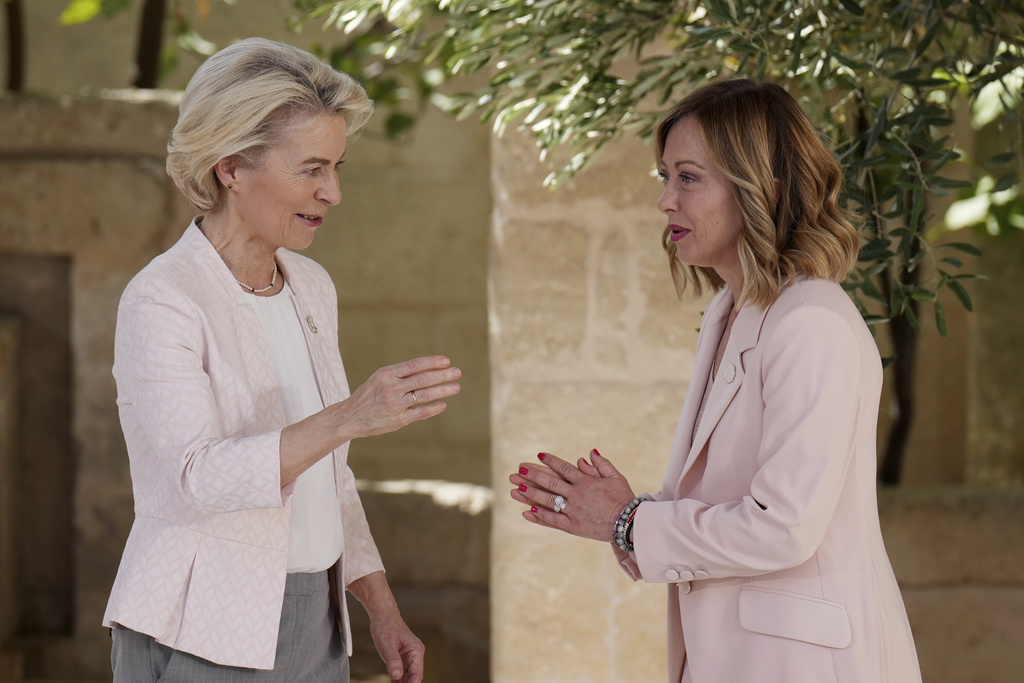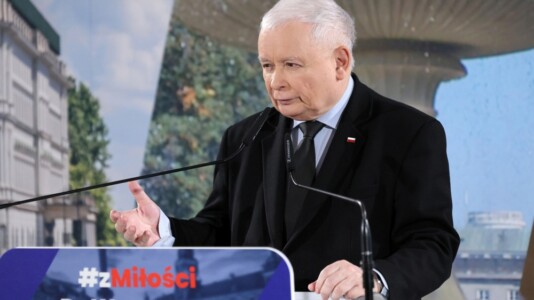From the chatter in the Brussels’ salons and corridors, it appears that despite what Donald Tusk claims, the distribution of the EU’s most significant positions is far from decided. This uncertainty is particularly poignant as the EU’s leaders seem to dismiss voter voices right from the start, attempting to mislead them.
While the dominance of Christian Democrats and Socialists in the European Parliament is unquestionable, liberals from the Renew Europe group have stirred up trouble, which could impact the allocation of the most important positions in the Union.
Renew Europe has suffered significant setbacks, particularly losing 12 seats from Macron’s Renaissance faction. Another blow came from the ANO party of former Czech Prime Minister Andrej Babiš, who took seven MEPs out of Renew Europe. It is still uncertain where these MEPs will end up, but they are unlikely to support the creation of a European superstate.
Moreover, five MEPs from the pan-European, federalist Volt party have announced their departure from Renew Europe. This is largely because Renew Europe has not distanced itself from the Dutch People’s Party for Freedom and Democracy (VVD), which now collaborates with Geert Wilders’ eurosceptic Party for Freedom (PVV) in the Netherlands.
These details highlight that not only democratic elections but also intrigues and alliances determine who will wield power. Italian Prime Minister Giorgia Meloni may demonstrate significant cunning in these schemes.
Currently, Renew Europe holds only 73 seats, 19 fewer than in the previous session, making it the fourth-largest group in the European Parliament. This loss marks a significant downgrade, as previously, the three largest groups traditionally divided the most significant positions among themselves. Now, Renew Europe retains only the presidency of the European Council, held by Charles Michel.
However, the European Conservatives and Reformists (ECR), led by Meloni, now have 83 MEPs. They could have had 11 more had Meloni accepted MEPs from Hungary’s Fidesz, but she rejected them, causing an uproar within ECR. Meloni has been criticized as a cynical Eurocrat, disregarding election results and building political ghettos without consulting others.
Additionally, Meloni has rejected dialogue with Marine Le Pen, the major winner of the French EU elections, and is instead negotiating with Ursula von der Leyen, taking political intrigues to a new level. Meloni is accused of weakening the conservatives and selling out the right wing for Italian gains in EU positions. Long criticized for adopting elitist Eurocrat manners — lies, intrigue, and hypocrisy — Meloni appears to be ensnared in the politics of deception.
Meloni is also challenging the appointment of Estonian Prime Minister Kaja Kallas from Renew Europe for the position of High Representative for Foreign Affairs and Security Policy. Polish Prime Minister Donald Tusk, after returning from Brussels, boasted at a conference that negotiations over positions had been settled, essentially admitting to negotiating deceptively. However, according to EU agreements and voter will, it is not Renew Europe but the third-strongest force in the European Parliament, the ECR, who should receive one of the most crucial EU positions.
Despite Tusk’s narratives, von der Leyen cannot be confident about her reappointment as the head of the EU commission. She remains a controversial figure, and her reappointment as the head of the European Commission is under threat due to her poor track record and the ongoing scandals that have marred her tenure. The governing coalition of the EPP, Socialists, Greens, and Renew Europe nominally gives her a significant majority, but actual voting may prove painful, as her previous endorsement was barely secured.
Additionally, the candidacy of socialist Antonio Costa for President of the European Council is marred by corruption scandals, emphasizing the enduring influence of intrigue over integrity in the allocation of Europe’s top jobs.
Thus, all signs indicate that nothing is settled in Brussels, and through scheming and intrigue, all outcomes remain possible. It will be interesting to see if Brussels sets a new record in this reshuffle. In the previous term of the European Parliament, of the more than 30 top officials and rulers of the EU, nearly one-third were involved in various scandals, most commonly related to bribery, nepotism, or intellectual property theft.






